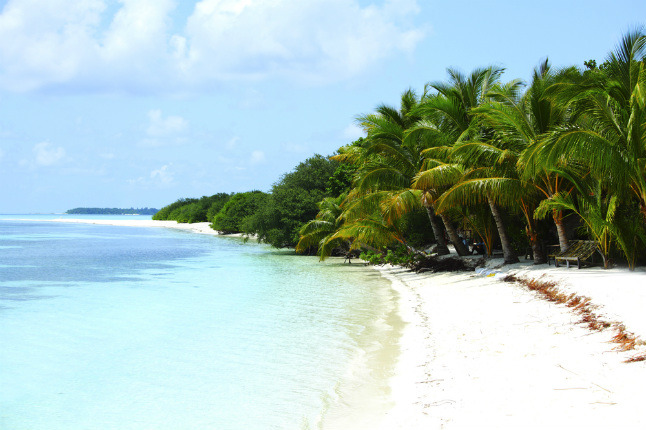Predicaments Of Paradise: The Hardships Facing Tropical Islands Around The World
Ronnie Blair—Many people can't help but view the islands of the Caribbean, the Pacific and elsewhere as exotic destinations that afford momentary escape from the sometimes dreariness of day-to-day living. But the island culture that gave the world a laid-back lifestyle and Bob Marley's music isn't always the utopia those travel-agent brochures and websites might lead you to believe.
"I understand why tropical islands are sometimes considered paradise," says Carlisle Richardson, a United Nations economic-affairs officer and author of the book Island Journeys: The Impact of the Island Way of Life at Home and Abroad. "As a native islander, I feel and believe in this sentiment myself. But I also know that island living presents challenges that are much more complex than lying in the sand or enjoying a cool island breeze."
Richardson, who grew up on St. Kitts and Nevis in the Caribbean, is eager to see what the impact on islands might be in September when the United Nations is expected to adopt its post-2015 development agenda and sustainable development goals. Such issues as ending poverty and hunger; fostering sustainable economic growth; and combatting climate change will be at the forefront of discussions.
He says that while the UN aims for a worldwide impact, the success of those goals may be even more critical to island nations.
"I would never suggest that islands are more important than anywhere else or anything else," Richardson says. "I understand that larger areas with bigger populations may generate more interest simply because of their size. But islands do matter and they matter significantly. In fact, because of their size, they sometimes need a little extra attention."
Here are a few of the challenges islands and their people contend with:
• Economic Realities. Because island economies are small and open, they are heavily affected by any fizzle in the international economy. "Unfortunately, when economists speak globally, they don't take into account the small populations of islands and the fact that a 'minor glitch' in world economic growth can be an economic calamity for 100,000 people or fewer living on an island," Richardson says. "Competition between global powers over terms of trade is a catastrophe for island communities."
• Climate change. Islands are surrounded by water, which puts them at the front lines of climate change. Islanders don't have the luxury of viewing climate change as some philosophical debate, Richardson says. "We experience the rising sea level up close and personal, and when a disaster strikes, it strikes us very hard," he says.
• Loss of culture and heritage. Islanders love to experience other cultures and to compare them to their own, Richardson says. They also want their culture and way of life to be appreciated. But with both those feelings comes a bit of wariness, he says. "We islanders are, sometimes, suspicious of outsiders out of fear of losing our lands, our culture or ourselves," Richardson says. "We have, after all, experienced such losses time and time again."
Richardson's travels have taught him that islanders share commonalities. One is how the discovery of the outside world can change an islander's point of view.
"Where once we were content, we suddenly feel the limits of our surroundings and we want more than what we have," Richardson says. "It is at this point that the two extremes kick in. There are those who want to preserve the island existence and fear any disturbances that may upset the balance, and others who feel the walls closing in when the outside world seems so much more attractive than their island world."
Although there are troubles that must be addressed, Richardson largely is optimistic about islands and their future.
"Yes, we have challenges, but we persevere," he says. "We are resilient, because this is our home and we want nothing but the best for it."
More Reading:
8 Islands You'll Never Step Foot On
10 Extravagant Islands You Can Actually Buy
The Most Dangerous Islands in the World
